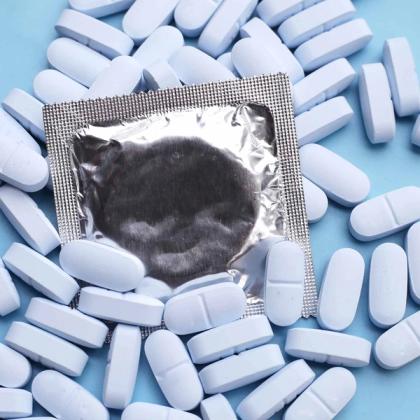Ep 171 – Rethinking HIV: prevention and pre-exposure prophylaxis

Posted 28 Aug 2025
Dr James Waldron, Dr Grace Bottoni, Dr Emily Mabonga
What if one of the most misunderstood diagnoses of the past is now one of the most manageable chronic conditions? How can GPs play a pivotal role in tackling stigma, increasing testing and improving outcomes for people living with HIV?
Dr James Waldron is joined by Dr Grace Bottoni (HIV and Hepatitis C GP Champion, Lewisham) for a series of podcasts about HIV. Together, they explore a range of topics with experts in the field. In this third episode, they talk with Dr Emily Mabonga (Consultant in HIV Medicine, London) about pre-exposure prophylaxis (PrEP): who it is for, how to start the conversation and practicalities around access and dosing.
Key take-home points
- Normalising conversations about sex and risk empowers patients and tackles stigma.
- Primary care plays a key role in HIV prevention, not just for testing and treatment but also in making space for safe, proactive discussions.
- The UK HIV Action Plan aims to end new transmissions by 2030; HIV opt-out testing and primary-care engagement are central to this.
- Undetectable is untransmissible (“U=U”) is a cornerstone of modern HIV care: treatment prevents transmission.
- What is PrEP? A daily or event-based tablet that stops HIV infection. Think of it like contraception, and think of post-exposure prophylaxis (PEP) like emergency contraception (within 72 hours).
- Who is PrEP for? Anyone at risk, including those with new partners, inconsistent condom use or sexually transmitted infections. Just asking for it is a valid reason to signpost.
- PrEP and PEP are HIV-prevention tools that every GP should know about; they are safe, effective and free.
- Start the conversation:
- “Have you considered protecting your sexual health? It’s free and could stop you getting HIV.”
- Patients often want to talk but wait for the clinician to initiate the conversation.
- Acknowledge discomfort: this is new for many healthcare professionals too.
- Practicalities:
- No identification or NHS number is needed to access PrEP.
- It is confidential and accessed via level 3 sexual health clinics.
- Leaflets and posters in your waiting room can help normalise it.
- Different PrEP dosing options:
- Daily for regular risk.
- Event-based for occasional risk (two tablets 2–24 hours before exposure).
- Effectiveness:
- The PROUD study showed an 86% reduction in transmission with PrEP as compared with treatment deferred for 1 year.
- U=U is backed by over 58,000 data points – no linked transmissions with viral suppression.
- Addressing stigma:
- It is a major barrier for patients and healthcare professionals alike.
- We must talk openly to challenge it: silence does harm.
- Primary care’s opportunity:
- Sexual health conversations belong in general practice.
- Testing and prevention together help "close the loop".
- The period after a negative HIV test represents a great moment to discuss PrEP.
Related references and resources
- HIV Drug Interactions. https://www.hiv-druginteractions.org/checker.
- Prevention Access Campaign. https://preventionaccess.com/.
- NHS. 2024. https://www.nhs.uk/nhs-services/sexual-health-services/find-a-sexual-health-clinic/.
- McCormack S, Et al. Lancet. 2016;387(10013):53-60. doi: 10.1016/S0140-6736(15)00056-2.
- NHS. https://www.nhs.uk/medicines/pre-exposure-prophylaxis-prep/.
- i-Base. 2025. https://i-base.info/prep/.
- YouTube. 2023. https://youtu.be/8WnBAJrPpzg.
- Women and PrEP. https://www.womenandprep.org.uk/.
- IwantPrEPnow. 2025. https://www.iwantprepnow.co.uk/.
- South East London Integrated Care System. 2025. https://www.selondonics.org/lewisham-prep-clinic-in-general-practice/.
Create an account to add page annotations
Add information to this page that would be handy to have on hand during a consultation, such as a web address or phone number. This information will always be displayed when you visit this page